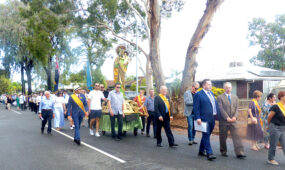Concern continues over school funding
Local

New ‘Gonski 2.0’ legislation rushed through Parliament last month fails to deliver fair, needs-based funding for students, according to Catholic Education SA (CESA).
“We continue to believe this legislation was developed hastily and adopted without sufficient scrutiny,” said Bruno Vieceli, CESA interim director.
“Quite simply – despite all the rhetoric – I’m not convinced the needs of all students in South Australia and in particular those in Catholic schools are being met out of this deal.
Advertisement
“While Minister Birmingham says that Catholic schools will gain $110 million over the full term of the legislation, the reality is that this barely covers the increased cost of running schools over that period when you factor in inflation and wage increases.
“Using the government’s own funding estimation tool, Catholic schools in SA will get a reduction of approximately $230 million in Commonwealth funding than would otherwise have been received if we kept the current funding methodology over the full 10 years. “Clearly such a shortfall will have significant implications for children and young people in our schools.”
Mr Vieceli said he was pleased there would be a review of the socio-economic status methodology which was long overdue. It was hoped a thorough and transparent review would highlight some of the deficiencies of the funding model to provide a good outcome for all students.
He also acknowledged that the government had offered Catholic schools in SA an additional $3.5 million in 2018 during the transition to the new model. This represented an increase of 0.66 per cent in Commonwealth funding.
Related Story
 Schools
Schools
Minister visits Nazareth
“While this additional funding will go towards assisting schools to meet the needs of students in 2018, we continue to have concerns over how schools will meet the needs of students over the full term of the legislation,” Mr Vieceli said.
“We are also concerned that the introduction of the NCCD (Nationally Consistent Collection of Data) as a measure of funding for students with disability is premature and lacks the confidence of educators and families of students with disability.
“We simply don’t know enough about how the National School Resourcing Body will operate to comment on whether it will be effective.
“A better approach to developing education policy would have involved and relied heavily upon the views of educational leaders from all sectors.”
Mr Vieceli said the Catholic education sector would take every opportunity to work with the government to ensure the best possible outcomes for all.
National Catholic Education Commission executive director Christian Zahra said that while Catholic schools across Australia were bitterly disappointed that the Federal Government has imposed a flawed funding policy on them without consultation, they would continue to do what they have done for 200 years – provide a great education to one in five Australian students.







Comments
Show comments Hide comments